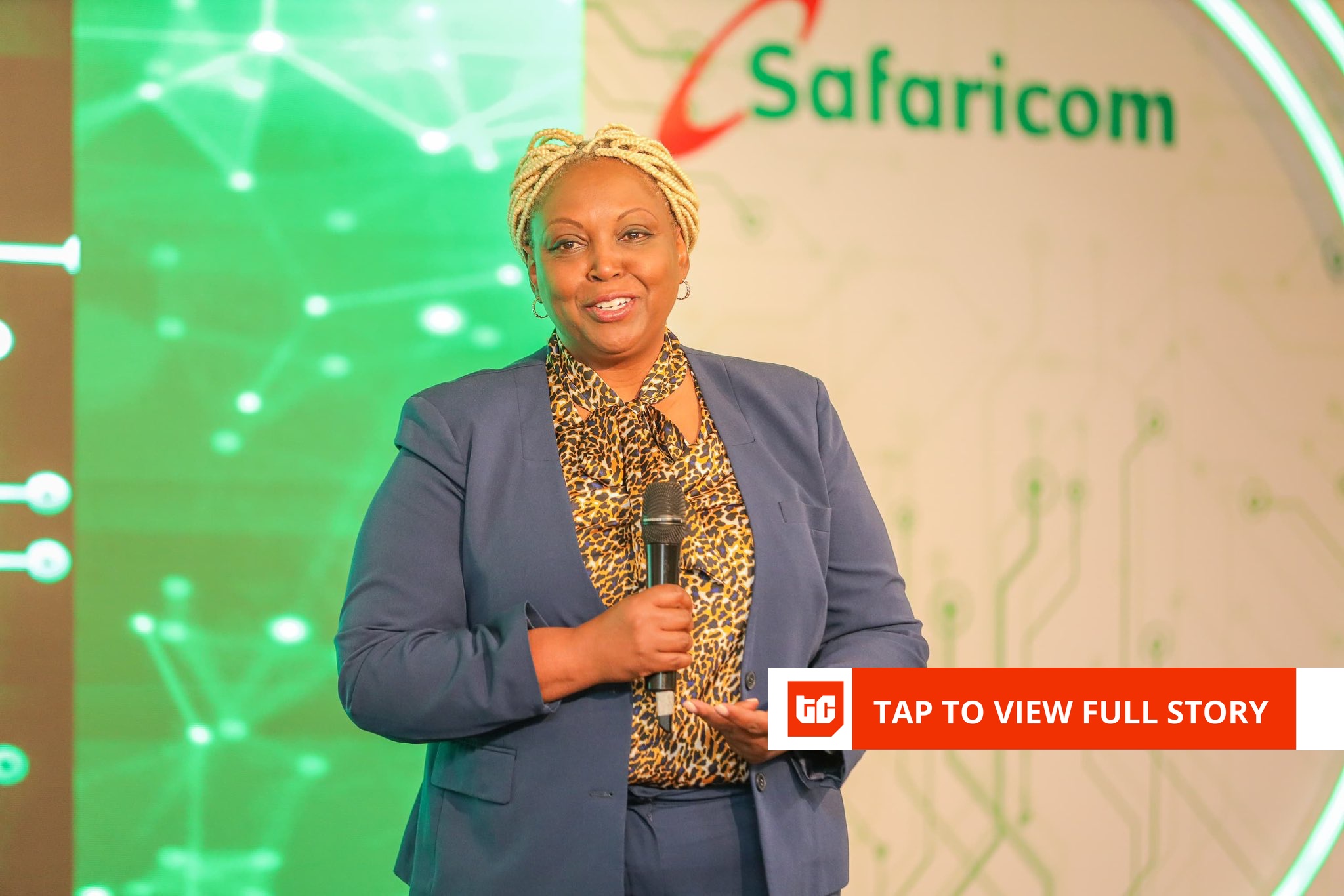A year ago, African founders were cautiously optimistic. Tech was cooling, but optimism still lingered in the wake of post-COVID digital acceleration. Fast forward to 2025, and reality has reset the narrative.
Tariff wars between major global powers triggered by President Donald Trump’s return to office, a sharp contraction in venture funding, persistent currency devaluations, and a regional economic slowdown have reshaped what it means to build a startup on the continent.
Add to that an evolving regulatory landscape and a volatile political season—over a dozen African countries will go to the polls between 2025 and 2028—and the terrain looks even more uncertain.
But amid the uncertainty, a quiet but significant transformation is underway. A new generation of African startups is learning to build for long-term resilience, not for the hype cycle.
This is not just a case of investors being risk-averse. It’s a function of shifting priorities. The era of fast and loose capital is over. Global VCs are looking for more than potential; they want proof—proof of revenue, proof of grit, proof that founders can stretch every dollar—or every shilling or naira—and still build something that matters.
In today’s capital markets, flashy doesn’t cut it. What wins is substance.
Next Wave continues after this ad.
Rethinking pricing and ops
If you’re building a startup in Africa right now, chances are you’re also moonlighting as a part-time currency analyst. And not by choice.
The past two years have been relentless for local currencies. Nigeria’s naira has tumbled, losing over half its value in just 24 months. The Kenyan shilling has fallen over 25%, its steepest drop in decades. Ghana’s cedi and Egypt’s pound continue their slow slide, eroding the purchasing power of businesses that rely on imports, cloud services, or any product priced in dollars.
For founders, the consequences are immediate and painful. Imagine watching your AWS bill double—not because you used more cloud storage, but because your currency collapsed overnight. Salaries, software licences, and even basic hardware get more expensive when you’re pegged to the dollar but earn in local currency.
That’s the reality African startups have been navigating all year. And it’s forcing some to adapt in creative and deliberate ways.
Take Instabug, a leading Egyptian SaaS startup that builds bug-reporting tools for developers. They serve a global market, but their home base is rooted in a currency that has been under pressure for months. Rather than pass on higher costs to users or lose ground to competitors, they adjusted. The team localised pricing for emerging market customers, offering more affordable tiers while protecting their margins. That simple shift helped them retain users who might otherwise have abandoned their services due to affordability issues.
Other startups are thinking longer-term. Some are experimenting with hedging strategies, locking future currency exchange rates to reduce uncertainty. Others prepay essential services like cloud hosting in hard currency, insulating against future rate shocks. Then, some tackle the root problem by reshaping how they operate altogether.
Look at Wasoko, the B2B e-commerce giant operating in Kenya, Tanzania, Rwanda, and beyond. Their model depends on moving fast-moving consumer goods (FMCGs) across the region. But with currency fluctuations and import costs eating into margins, they’ve doubled down on regional warehousing and local supply chain networks. Instead of relying heavily on imports, they’ve begun sourcing more products locally and building infrastructure that allows them to fulfill orders faster, cheaper, and in a way that’s less vulnerable to currency shocks.
Founders on the continent have no choice but to become macroeconomic students. And in doing so, they’re building leaner, smarter, and ultimately stronger companies.
Next Wave continues after this ad.
Building with governments
Governments across the continent are becoming more assertive, especially in sectors like fintech, mobility, and artificial intelligence. On the surface, this is another hurdle for already-strapped founders. But look a little closer, and a more nuanced picture emerges: startups that lean into regulation—not just tolerate it—are discovering new paths to scale and build long-term defensibility.
Nigeria’s fintech boom collided with the Central Bank’s stricter oversight in 2023 and 2024 as the regulator tightened controls and paused licensing new providers. For most startups, it led to product slowdowns.
But fintechs like Moniepoint bucked the trend, building operations and internal compliance teams that rival traditional banks. That groundwork might be paying off—Moniepoint processes over $13 billion in transactions, serving over 2 million businesses. To earn the trust of both customers and governments, African startups should make regulatory discipline more than just a box to check.
Across the borders in Kenya, mobility startup BasiGo has worked with Nairobi city authorities and energy regulators to enable EV adoption, including piloting charging stations and financing models compatible with the existing public transport systems (locally known as matatu). Regulation is no longer an afterthought but a moat.
In South Africa, new data protection laws under POPIA (Protection of Personal Information Act) are changing how startups handle user data. Payments startup Yoco, which serves small businesses, was one of the first to embed privacy-by-design across its platform, winning users’ trust in a country increasingly suspicious of data misuse. While others scrambled to update privacy policies, Yoco turned compliance into a customer retention edge.
Even in newer areas like AI, engaging with regulators early is paying off. In Rwanda, where the government is actively seeking to establish itself as an AI hub for the continent, startups like Zindi, a pan-African data science platform, have begun working with local academic institutions and ministries to ensure responsible uses of AI in public health and education.
We’re entering a new era where regulation is no longer an afterthought—it’s infrastructure. Like a server stack or logistics network, navigating compliance is now a core part of the build. For startups, this shift requires a change in mindset. It’s no longer enough to “move fast and break things.” In most markets, moving smart—and building with governments, not around them—might be the moat that will let you outlast your competition.
Next Wave continues after this ad.
The long game
A few traits stand out for what it will take to win the future as an African founder. It’s tempting to believe the answer lies in AI, mobile money, and green tech trends. And yes, those waves matter. But catching a wave differs from building a strong vessel to cross oceans. The startups that will still be standing a decade from now are those being built differently today.
Capital efficiency is no longer optional. With venture funding in Africa dropping, burn-first models are quickly becoming relics. Founders who default to lean, customer-funded growth—rather than pivoting to it under pressure—find more control, less dilution, and longer runways.
Then, there’s geopolitical awareness. The world is splintering—currencies are volatile, supply chains are strained, and global investment flows are less predictable than ever. Innovative founders treat this not as background noise but as part of the build. They’re pricing in risk, diversifying suppliers, and incorporating in jurisdictions that protect them long-term.
Also, the best companies aren’t just building products but building with people. Call it community-first thinking. Whether Numida’s relationship with Ugandan SMEs or BasiGo’s partnerships with matatu owners in Nairobi, startups that treat customers like collaborators—not just users—earn loyalty that no VC cheque can buy. In markets where trust is earned offline, this matters.
Lastly, the regional playbook is back in vogue. Scaling in Africa has always been tough, but it’s now clearer than ever that one-size-fits-all won’t cut it. What works in Lagos may flop in Dakar. The startup that cracks Francophone Africa will need different messaging, partnerships, and payment infrastructure than one growing in East Africa. The winners aren’t just expanding—they’re adapting.
And perhaps most crucial of all: purposeful patience. Not every company will be a unicorn. Not every exit will come in five years. However, some startups will become enduring institutions that solve deeply local problems, create decent jobs, and grow sustainably for generations. These companies may not grab headlines every quarter, but they’ll still serve millions when the hype cycles fade.
That’s what winning the long game looks like.
Adonijah Ndege
Senior Reporter,
Thank you for reading this far. Feel free to email adonijah[at]bigcabal.com, with your thoughts about this edition of NextWave. Or just click reply to share your thoughts and feedback.
We’d love to hear from you
Psst! Down here!
Thanks for reading today’s Next Wave. Please share. Or subscribe if someone shared it to you here for free to get fresh perspectives on the progress of digital innovation in Africa every Sunday.
As always feel free to email a reply or response to this essay. I enjoy reading those emails a lot.
TC Daily newsletter is out daily (Mon – Fri) brief of all the technology and business stories you need to know. Get it in your inbox each weekday at 7 AM (WAT).
Follow on Twitter, Instagram, Facebook, and LinkedIn to stay engaged in our real-time conversations on tech and innovation in Africa.












